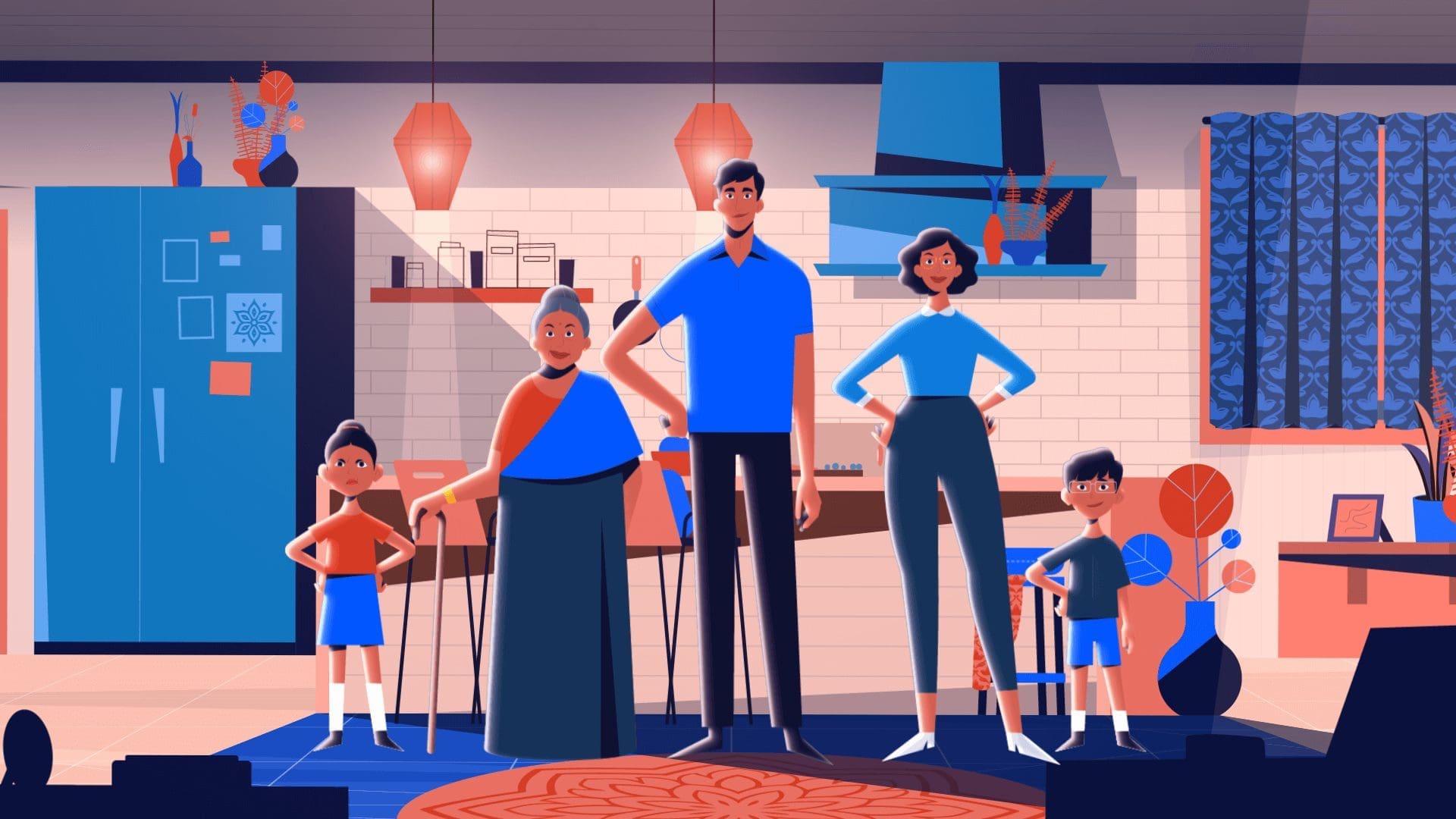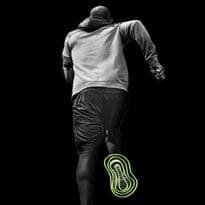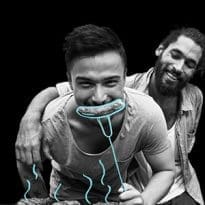How To Support Our Kiwi Family Men’s Mental Health
Acknowledging the strong link between fatherhood and mental health, Movember developed Family Man to provide dads with parenting strategies that improve child behaviour and reduce parental stress. Around three-quarters of men will become fathers at some point in their life.
Previous Movember research has shown that 42 per cent of dads say they feel anxious about being a ‘good father’*. Yet, the rate of male participation in parenting programmes is disproportionate to other genders. Only a fifth (20 per cent) of parents who have taken a parenting course are men*.
*Fatherhood and Social Connections: Global Research Report of Male Social Connection, Research by IPSOS MORI commissioned by Movember, June 2019.
With the launch of Family Man, Movember is hoping to support men to be better fathers and to be more confident as they navigate the challenges of fatherhood. The free, interactive, online programme is comprised of three animated episodes which dads can complete at their own pace. Each episode features a father as the main character who is faced with a challenging situation such as a battle over the dinner table or a tantrum in public.
Users are given a number of possible ways to respond to the situation, the pros and cons and likely outcomes of each option are carefully explained, using clear and direct instructions. The pioneering programme was built using funds raised by Movember fundraisers, donors and partners, and is available free of charge to all parents and caregivers. Jane Endacott, director of digital health, mental health and suicide prevention at Movember says that getting dads more involved in parenting decisions can help to build a stronger and more connected family.
“Being a parent can be a very rewarding experience, but it certainly isn’t always easy. Dealing with meltdowns in the supermarket or a child who repeatedly ignores instructions can be incredibly stressful,” said Jane. “It causes friction at home and over time that can impact the whole family’s mental wellbeing. There is a huge amount of research that shows parenting is more effective when it’s done as a team. We know that when dads are fully engaged in parenting decisions, it benefits the whole family.”
Mo Bro and Father Harvee Pene:
“It was pressure cooker environment. Our youngest, Mila arrived right at the heart of the Covid lockdown. But she was a ray of light during what was really a dark period of our lives.
A few years before, when I became a parent I realised it was the hardest job I have ever had in my life. There were high expectations and a big wakeup call when reality hit.
One of the most challenging things was no sleep. I’d start my day on an empty tank, and try to fill that tank with coffee – but I wasn’t as sharp, I was more emotional and reactive, and sometimes it was hard to think straight.
Nothing can prepare you for fatherhood, for me, it’s been more a journey of winging it, and cherry-picking a few things I’d see that seemed to work for friends and family.
We moved during COVID-19, and didn’t have ready access to a family support network being Kiwis living in Aussie. Culturally grandparents, siblings, cousins, uncles, and aunties all have an active role in helping to raise kids. They say it takes a village, and that’s true.
I love being a dad. There have been so many melt-your-heart moments. Havana, who is two-and-a-half, sang a Kiwi song word perfect, one my mum taught me as a child. Having the girls say “I love you”, the first time they call you “Dad”, that’s what gets me through the tough times.
But even so, I struggled. Just having 10 minutes to yourself doesn’t sound like much, to grab a coffee or have a shower, but it’s a game-changer when you haven’t had much sleep, and the kids are in your face.
Sometimes the baby would cry in the middle of the night, and it was like, “OK who’s going to get up?” Honestly, for my wife Sarah and I, at times it almost felt like a bit of a competition about who had made more of a sacrifice for the kids.
In the early days, we found ourselves at breaking point – we were both emotionally and physically exhausted. Many times, Sarah and I questioned whether we could still stay together in our relationship. We’d squabble about little things like who was going to empty the dishwasher or take the rubbish out. We realised that what mattered was working together, and supporting each other. We needed to talk more and to be on the same page.
So we had a family meeting and allocated parenting jobs, tonight’s your night or your day, or these are your tasks. It might sound overly pragmatic or even boring – but it meant we began to work together, in a more structured way. It was crucial for our relationship to survive.
Now we have regular Saturday morning family meetings at a coffee shop – all the kids are there and we have an agenda, but we also have fun too. You can teach your kids by example, so the kids will and do have involvement in it.
Sarah has been back at work full time since Mali was a young baby. I’m a stay-at-home dad at the moment, and surprisingly many people genuinely think it’s odd. I took Mali to the doctor the other day and he said, ‘Why are you here, and not at work?’ He was curious, and I told him that I look after Mali full time, it’s my job. I have my own business now, so have the opportunity to be there for those really precious moments while Mali is young.
I didn’t have that opportunity with Havana. She is our little miracle baby… I love her to bits. I was blindsided by testicular cancer four years ago. With chemotherapy and radiation therapy I was told I could possibly not have kids, which was devastating. But now I’m 100 percent cancer-free.
Our eldest is Mila, she’s nine going on 19, and I’m her stepdad. I loved having an instant family – but it was a crash course from being a 30-year-old bachelor to being a stepdad. We have found our groove now – there are things I can teach her, like cooking, gardening, and learning about being independent. I’m enjoying watching her grow up.
I don’t think there is enough support out there for dads who are struggling. Women have a lot of mother’s groups – which is well deserved and needed, but there isn’t a lot out there for dads.
I wish I had access to something like Family Man when I first became a dad. You can learn practical strategies, positive reinforcement vs. reacting to negative behaviours, and things like quality use of time out, which has been a lifesaver.”
Family Man founded on evidence based approach
The online programme has been adapted from a successful parenting programme called ParentWorks. A study of the programme showed it led to significant decreases in child emotional and behavioural problems and parental mental health problems in those who took part.
ParentWorks was developed out of the University of Sydney by Professor Mark Dadds who has been heavily involved in the development of Family Man.
“Evidence-based parenting programmes are effective in reducing behavioural problems, yet few involve the participation of fathers,” said Mark.
“[The ParentWorks study] showed that this type of intervention was successful in reducing child behavioural problems, dysfunctional parenting, interparental conflict and, (as a result) improving parental mental health.
“We were able to recruit a large number of dads to take part and both fathers and mothers seemed to benefit equally from the programme.
“Family Man was designed to be accessible to all families and may be especially useful in rural and remote areas, where resources can be hard to access.
“It can be fully delivered online, without the support of trained practitioners, which is a key barrier for many parents.”
The programme is designed for dads of children aged between two and eight, but can be used by any parent or caregiver – and for children outside of this age bracket.
To learn more about Family Man, visit familyman.movember.com.
Get Involved
Patchy, lopsided, itchy or epic – whatever Mo you grow this Movember, your face will raise funds and awareness for men’s health.
Host A Mo-ment
Rally a crew and do something fun and easy, virtual or in person. Hosting is all about having a good time for a good cause.
Make a Move
Run or walk 60km over the month. That’s 60km for the 60 men we lose to suicide each hour, every hour across the world.





